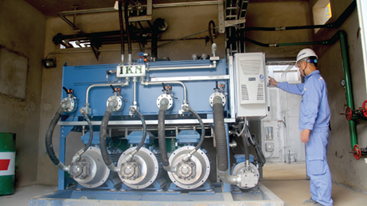Saturday, 27/07/2024 | 07:51 GMT+7
A day after the start of the new Formula 1 season, the Department for Transport announced a consortium including Jaguar Land Rover and Nissan has received £1.7m to support work to deploy ‘light weighting' technology in commercial vehicles.
The government said the project was "applying the science behind Formula 1 cars and space satellites to make passenger cars weigh less and be more fuel efficient". It added that the results could reduce the weight of steel components in vehicles such as the Nissan Leaf by more than half, potentially extending the distance a plug-in car can drive by up to 25 per cent.
The project was just one of more than 130 green automotive R&D initiatives to share £38.2m of government funding, which includes £30m from the Office for Low Emission Vehicles (OLEV) and £8.2m from Innovate UK.

The successful projects are expected to begin unveiling working prototypes by 2018 with a view to their technology being available for use in passenger cars from 2020.
"Our £38m investment will help Britain become a world leader in this exciting and valuable technology sector, creating skilled jobs of the future as part of our long-term economic plan," said Transport Minister Andrew Jones in a statement. "It will also mean lower running costs for motorists and less fuel consumption, which is good for the environment and our economy.
"This competition continues our £600m commitment by 2020 to support the uptake of ultra-low emission vehicles, making journeys cheaper and greener, ensuring the nation is fit for the future."
Other projects to be awarded funding include a research programme led by Sheffield-based Faradion Ltd, which received £1.3m to support its work to develop low cost sodium-ion batteries for electric cars, and a project from fuel cell specialist Ceres Power to test new cells for electric vans, which received £770,000.
"UK businesses have a great opportunity to be at the leading edge of the global drive to increase efficiency and reduce emissions from our vehicles," said Roland Meister, Head of Transport at Innovate UK. "This £38m of government support means that more than 130 innovative organisations right across the country now have the chance to get their ideas off the drawing board and potentially into the cars and trucks of the future, boosting the economy by at least £532m in the process."
Business Green



.jpg?w=367&h=206&mode=crop)




.jpg?w=367&h=206&mode=crop) Notice for Contracts award for Support to Industrial Enterprises for Energy Audits and Preparation of Feasibility Studies (Package No. C2.2.4)
04/06/2024
Notice for Contracts award for Support to Industrial Enterprises for Energy Audits and Preparation of Feasibility Studies (Package No. C2.2.4)
04/06/2024
 Training Courses for Energy Managers and Energy Auditors
Training Courses for Energy Managers and Energy Auditors
 Vietnam Energy Outlook Report – Pathway to Net Zero
Vietnam Energy Outlook Report – Pathway to Net Zero
 Long Son Cement saves 30% of electricity consumption thanks to heat recovery
Long Son Cement saves 30% of electricity consumption thanks to heat recovery
 Expression of Interest: C2.1.15: Development of Energy-Efficient Technology Catalogs for the Industrial Sector
Expression of Interest: C2.1.15: Development of Energy-Efficient Technology Catalogs for the Industrial Sector
 Optimizing Compressed Air Systems for Southern Industrial Enterprises
Optimizing Compressed Air Systems for Southern Industrial Enterprises
 The Ministry of Industry and Trade Review the Energy Efficiency and Conservation activities in Lao Cai.
The Ministry of Industry and Trade Review the Energy Efficiency and Conservation activities in Lao Cai.
 EOI Extension: C2.2.2: Review and update for current EE benchmarking for 2 sub-industrial sectors
EOI Extension: C2.2.2: Review and update for current EE benchmarking for 2 sub-industrial sectors